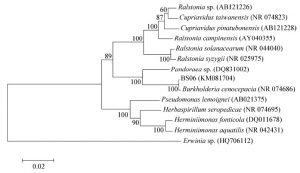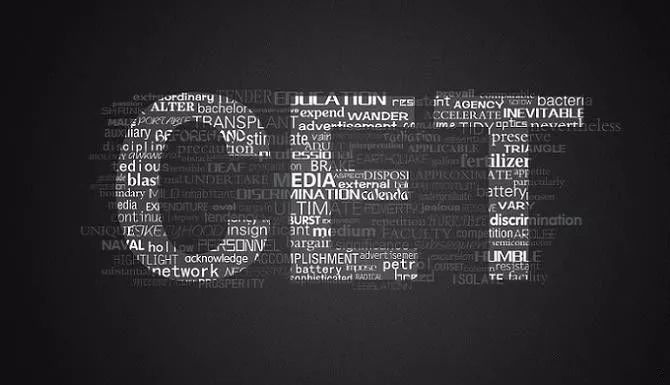四 / 六级(CET4 / 6)作文模板
![图片[1]-四 / 六级(CET4 / 6)作文模板-友沃可](https://i.uvooc.com/wp-content/uploads/2020/03/frc-0140ec42c85b00fadeead5af1a1d17ec.jpeg)
资源来源于网络,建议呢,自己随机组合多个,挑着去背
开头
现象阐释法
现象阐释法指的是直接就题目进行简单描述,给出自己的理解。这是现象解释型和问题解决型作文最常用的一种方法。
现象阐释法的结构素材主要分为两种:
描述现象/图片
1. Recently, the rise in the problem of ______ has aroused public/wide concern.
近来, ______问题的增加已经引起了公众/广泛的关注。
2. Recently, the issue of ______ has been brought into focus/brought to public attention. 近来, ______问题已经成为人们关注的焦点。
3. The problem of ______ has caused wide concern over recent years.
近年来, ______问题已经引起了广泛的关注。
4. With the rapid growth of ______ , ______ have/has become increasingly important in our daily life.
随着 ______的快速增长, ______在我们的日常生活中已经变得越来越重要。
5. Now there is a growing awareness/recognition of the necessity to ______ .
如今,人们越来越意识到 ______的必要性。
6. Now people in growing/significant numbers are beginning/coming to realize/be aware that ______. 如今,越来越多的人开始意识到 ______。
7. After a good many years of enthusiasm for ______ , people begin to ______ .
热衷于 ______多年之后,人们开始 ______。
8. One of the burning/pressing questions/problems facing/confronting our nation/society today is ______ . 我们的国家/社会今天面临的紧迫问题之一是 ______。
9. With ______ playing an increasingly important role in ______ , more and more ______ . 随着在 ______中的作用日益重要,越来越多的 ______。
10. Whenever you see/find ______ , you can\\’t help being shocked/surprised at ______ . 每当看到/发现 ______的时候,你会不禁为 ______感到震惊/惊讶。
11. As the bar chart shows, the number of ______ has dramatically increased/decreased during the ______ years from ______ to ______. 如柱状图所示, ______的数量从 ______年到 ______年 ______年之间急剧增加/减少。
12. From the graph, we know the statistics of ______ and ______ . It can be seen easily that ______.
从图表中我们可知 ______和 ______的数据。我们可以很容易地看出 ______。
13. From the bar chart, it is clear that between ______and ______ the amount of ranged from ______to ______ . 从柱状图中可以清楚地看到,从 ______到 ______, ______的数量在 ______到 ______之间变化。
14. As the bar chart shows, great changes concerning ______ took place between ______ and ______ .
柱状图表明,从 ______到 ______, ______发生了很大的变化。
15. As can be seen in the graph, ______ saw great changes in ______ between ______ and ______ .
从图表可知,在 ______到 ______之间, ______发生了巨大变化。
16. The cartoon vividly depicts ______. 这幅漫画生动地描述了 ______。
17. As is described in the picture, ______ . 如图中所描述的, ______。
18. As is vividly indicated in the above drawing/picture, ______ .
如上图生动地描述的那样,______。
19. The drawing, thought-provoking as it is, does mirror a social phenomenon that ______ . 这幅发人深省的图画的确反映了这样一个社会现象: ______。
20. In the cartoon presented to us, ______. Obviously, what the cartoon illustrates/reveals is ______ .
在展现给我们的图片中, ______。显然,该图片说明/揭示的是 ______。
21. As is symbolically depicted in the drawing above, ______. Although the drawing is designed simply, it does reveal that ______ .
正如上图象征性地描绘的一样, ______。虽然该图很简单,它确实反映了 ______。
22. As is vividly illustrated in the cartoon, ______ . The central point of this cartoon is that ______. 正如漫画中生动展示的, ______。该漫画的主旨是 ______。
引出观点
1. This picture demonstrates one of the basic theories of philosophy:______ .
这幅图片展现了哲学的一个基本理论:______。
2. Such a picture draws attention to the fact that______ .
这样一种画面吸引我们注意到这样的现实:______。
3. The purpose of the drawing is to show us that ______.
这幅画是为了向我们展示______。
4. The painter reminds us of a common social phenomenon: ______.
画的作者提醒了我们一个普遍的社会现象:______。
观点引入法
引入法是观点论证型作文常用的一种方法。该方法开门见山地提出主题,并逐渐引出个人观点。观点引入法常用素材有:
引出观点
1. “______” is a proverb full of logic, which has been generally accepted.
“______”是一个非常有道理的谚语,被人们普遍接受。
2. As the old saying goes, “ ______.” It tells us that ______.古语道:“______。”该谚语告诉我们______。
3. When it comes to ______ , some think/hold/believe that ______. Others argue that the opposite is true. 当提及______时,有人认为______。其他人则认为事实恰好相反。
4. There is a public/general debate/discussion today/nowadays on/over/as to the problem/issue of ______. 如今,有一场关于______问题公开的/普遍的争论/讨论。
5. When asked whether it is advisable to ______, different people have different things to say. 关于______是否明智这个问题,不同的人有不同的看法。
6. People\\’s opinions about ______ vary from person to person.关于______,人们的观点因人而异。
7. Some people propose such a question:______ . 许多人提出这样一个问题:______。
8. Different people hold different views about______ .对于______,不同的人有不同的看法。
9. Faced with______ , quite a few people think that______ , but others conceive of it differently. 面对______,许多人认为______,但是其他人则持有不同的观点。
引出观点中的道理
1. It tells us that ______. 它告诉我们______。
2. It reminds us that ______. 它提醒我们______。
3. It means that ______. 它意味着______。
4. This proverb reflects ______. 该谚语反映了______。
5. The truth of this saying is ______. 这句话的真相是______。
6. Personally, I stand on the side of ______. 就个人而言,我支持 ______。
7. As far as I am concerned, I am in favor of the opinion that ______.就我而言,我赞同______的观点。
8. I agree that priority should be given to ______. 我赞同______具有优先权的观点。
问题引入法
问题引入法是观点论证型和现象解释型作文最常用的一种方法。本方法以问句开篇,更引人入胜。问题引入法常用素材如下:
1. We are often shown/told these days that ______. But is this really the case?
近来我们经常听说______。但情况真的如此吗
2. In recent years, there is a general tendency to ______. According to a study______, last year. Why ______?
近年来,有一个______的总体趋势。根据一项研究,去年______。为什么______?
3. These days we are often told that ______. But is that true?
最近,我们经常听说______。但是,那是真的吗?
4. These days we often hear about ______. But is this really the case?
最近,我们经常听说______。但是,事实真是如此吗?
5. “Why do______ ?” Many people often ask questions like this.“为什么______?”许多人经常问这样的问题。
6. Should ______? Opinions of/Attitudes toward ______ vary widely from person to person. 应该这样吗?不同的人对______有不同的观点。
7. What do you think of ______? Your answer to the question will reflect ______.
你怎么看______? 你对这个问题的答案会反映______。
8. “Why ______?” Of all the questions/complaints I have heard, this is the one most frequently voiced.
“为什么______?”在我听到的所有问题/抱怨中,这是最经常听到的一个。
9. When asked about______ , the overwhelming majority of/many people say/think/believe/answer that ______. But ______.当被问及______时,大多数/许多人认为/回答______。但是______。
10. Nowadays, it is commonly/widely/generally believed/thought/held that ______, but I wonder/doubt that ______. 如今,人们普遍认为______。但是我怀疑______。
中间段
一般来讲,真正决定作文表达效果的还是中间段。为了紧扣题意,增强表达效果,中间段的写作可采用以下三种方法:
列举法
列举法是四级写作中常用的方法,一般用first, second等一系列标志词引出原因或者可能的影响等。列举法常用的素材有:
引出列
1. There may be a combination of factors which contribute to/are responsible for/can explain ______. 也许有一些因素造成/可以解释______。
2. There are probably three/many/several/a variety of reasons for this dramatic/significant increase/decline in ______.
引起______显著增长/下降的原因有三个/许多/几个/很多。
3. Some reasons can explain this trend. 一些原因可以解释这一趋势。
4. Why ______ ?为什么______?
5. The causes of ______ are varied. They include______ , perhaps the main cause is ______. 造成______的原因有很多,包括______,主要原因可能是______。
6. The reason for this is not far to seek. 这一问题的原因不难发现。
7. It is no easy task to identify the reasons for this phenomenon which involves several complicated factors. 要找出这一现象的原因并非易事,因为它涉及若干复杂的因素。
8. There are numerous reasons why ______, and I would explore only a few of the most important ones here. ______的原因有很多,这里我只想探讨其中几个最重要的原因。
9. There are many reasons responsible for this phenomenon, and the following are the typical ones. 导致这种现象的原因有很多,以下是其中比较有代表性的。
10. There are many reasons explaining this case. As for me, I regard the following as the typical ones. 有很多原因可以解释该问题。就我而言,我认为以下原因比较典型。
11. A number of factors could account for/contribute to/lead to/result in the change of ______. 引起______变化的因素有很多。
分条列举
1. In the first place, ______. In the second place______ .首先,______。其次,______。
2. First,______ . Second, ______ . 首先,______。其次,______。
3. To begin with, ______. Secondly, ______. Last but not least, ______.
首先,______。其次,______。最后但并不是最不重要的,______。
4. The first reason is that ______. The second one is ______. The third is ______. 第一个原因是______。第二个原因是______。第三个原因是______。
5. First of all, ______. Secondly,______ . Furthermore,______ .首先,______。其次,______。另外,______。
6. For one thing, ______. For another, ______.一方面,______。另一方面,______
7. Firstly, ______. Secondly, ______. Thirdly, ______.首先,______。其次,______。再次,______。
8. Another reason why I disagree with the above statements is that I believe______.
我不同意上述观点的另一个原因是我认为______。
对比法
对比法是指通过对比两种截然不同的观点来陈述其中的利弊,从而得出自己的结论。对比法常用的素材有:
1. The advantages gained in ______ outweigh/are much greater than the advantages we gain from ______. 从______中获取的优势远远超过我们从______中获取的。
2. ______ bear(s) a close/striking resemblance to ______.______与______极为相似。
3. On the one hand, ______. On the other hand, ______.一方面,______。另一方面,______。
4. Similarly/Likewise/In the same way,______ . 同样,______
5. Although ______ enjoy(s) a distinct advantage, ______.尽管______有明显优势,但是______。
6. Many students like ______. Among them there are two different attitudes to ______. Some of them think that . Others, however, dont think so. They feel that ______. 许多学生喜欢______。关于他们有两种不同的观点。有人认为______。而另外一些则不赞同这种看法。他们认为______。
7. Nothing/Few things can approach/equal/match ______. 没有什么能与______相比。
8. Indeed, ______ carries more weight than ______when ______ is concerned.
的确,就______而言,______的重要性要超过______。
9. Serious as the problem may be, it pales into insignificance by comparison with . 这个问题可能很严重,但与相比就微不足道了。
10. In comparison/contrast, . 比较而言/对比起来,。
11. Indeed/Certainly, ______ play(s) a more/less important role when compared with ______. 当然,与______相比,______的影响要大/小得多。
12. Despite the fact that most of them like ______, I would like to choose to ______.
尽管有许多人喜欢______,我还是倾向于______。
13. When the advantages and disadvantages are compared/weighed, the conclusion/finding is quite obvious/self-evident. 比较一下优缺点,结论就不言而喻了。
14. There is no consensus among people as to ______. Some people suggest that ______, while others argue that ______. I agree with the latter/former.
人们并未就______达成一致意见。一些人建议______,而另一些人则争辩说______。我赞成后者/前者。
15. People differ greatly in their attitudes toward this problem. Some maintain that ______. Others, on the contrary, hold the opinion that ______. Personally, I stand on the side of ______. 人们对于这个问题的态度差异很大。有人认为______。与此相反,另外一些人认为______。就我个人而言,我站在______这一边。
16. For most people today, ______have/has become their main source of ______. But as for me, ______should be regarded as a better source. 如今大多数人将______作为______的主要来源。但就我而言,______应被看作一种更好的来源。
17. ______may be superior to ______, but it poses problems for those who ______. ______可能比______更好一些,但它会给那些______的人带来问题。
18. Different people have different ideas about ______. Some people take it for granted that ______. On the contrary, some other people think ______.
关于______的观点因人而异。有人想当然地认为______。相反,其他人则认为______。
19. This case has aroused echoes throughout the country with more and more people following its lead, but ideas about it vary widely. Those who criticize/oppose/object to/are against it argue/hold that ______, but people who advocate/support/are for it maintain/assert/claim that ______. 随着越来越多的人加入它的行列,这一事件已经在全国引起了巨大反响。然而,人们对此的观点却迥然不同。反对者认为______,但支持者则宣称______。
20. People differ in their opinions on ______. Some of them believe that ______, while others deem that .
人们对______持有不同的看法。有些人认为______,而有些人则认为______。
21. Many surveys show that people in increasing numbers are beginning to realize that ______. Meanwhile, many people still live under the traditional idea that ______. 许多调查显示,越来越多的人开始意识到______。同时,仍有许多人持传统观点,认为______。
举例法
所谓举例法,是指以恰当的事例来佐证自己的观点,例子应该典型、精炼。举例法常用素材有:
1. From my everyday experience and observation I can list several examples that defend the statement that ______.
根据我的日常经验和观察,我可以举出几个例子来证明______。
2. There are many instances supporting my opinion. 有许多例子可以证明我的观点。
3. Perhaps the most important example of ______ is ______.有关______的最重要的例子可能是______。
4. A case in point is ______. 一个恰当的例子是______。
5. Take ______ for example. 以______为例。
6. This is a concrete example that ______. 这是一个有关______的具体例子。
7. Nothing could be more obvious/apparent than the evidence that ______.再没有比______更明显的例子了。
8. I can think of no better illustration of this idea than the example of ______.
要说明这个问题,______是一个最好的例子。
9. The latest surveys conducted by ______ show/reveal/demonstrate/indicate that ______. 由______开展的最新调查显示______。
10. No one can deny the fact that . ______没有人可以否认______的事实。
11. Talking about ______, the first thing that may occur to you and me seems to be ______. 说到______,我们首先想到的似乎就是______。
12. A common example, which is frequently cited, is ______.一个被普遍引用的例子是______。
13. Instances of the same sort might be quoted easily, but this will be sufficient to show that ______. 类似的例子不胜枚举,但这一个就足以说明______。
14. History abounds with the example of ______. 历史上有许多______方面的例子。
末段
末段一般是总结全文,照应题目,点明主旨,深化中心。简洁、有力的末段可以为文章锦上添花。末段的写作可尝试使用以下四种方法:
归纳总结法
归纳总结法指的是以文章前面的论述为依据,引出或重申文章的中心思想或结论。归纳总结法常用素材有:
1. To sum up, ______can benefit us tremendously if correctly used.
总而言之,如果运用得当,______会让我们受益匪浅。
2. Therefore, it is not difficult to draw the conclusion that ______.因此,不难得出以下结论:______。
3. Recognizing the fact that ______ will lead us to conclude that ______.
承认______这一事实,我们能得出以下结论:______。
4. The evidence upon all sides supports/confirms/leads to a conclusion that ______.
各方面的证据支持/表明/得出这样一个结论:______。
5. From what has been discussed above/Based on the points discussed above, we can draw/arrive at the conclusion that ______.综上所述,我们能得出如下结论:______。
6. In summary/conclusion/a word, it is important that we should ______.
总之,我们应该______,这一点很重要。
7. Taking into account all of these factors, we may reach the conclusion that______ .
考虑到所有因素,我们得出结论:______。
名言引用法
名言引用法是指引用古今中外名人的名言警句来证明论点。名言引用法常用素材有:
1. The saying ______ has been widely accepted throughout the world. 名言______在世界范围内被普遍接受。
2. “______.” We are used to hearing such words like those. “______。” 我们常常听到这样的说法。
3. “______.” Such is the opinion of a great man. This remark has been confirmed time and time again by many historical events. “______。”这是一位伟大的人物的观点。该言论已经被许多历史事件反复验证。
4. As the proverb goes, ______ . 正如谚语______所说。
5. There is an English proverb which says that ______. 有一个英语谚语______。
6. There is an old saying, “______.” It is the experience of our forefathers, however, it is correct in many cases even today.
古语道:“______。”这是前辈的经验,但在今天许多情况下也适用。
7. “______” is the opinion held by______ . This remark has been confirmed time and again by more and more people. “______”是______的观点,而且被越来越多的人反复证实。
提出建议法
提出建议法是指对所讨论的问题提出建设性的意见或者解决问题的具体方法。提出建议法常用素材有:
1. It might be time to hear the warnings of some economists.该是听听一些经济学家的警告的时候了。
2. It is time that we put/urged an immediate end to the undesirable situation/tendency of ______. 该是结束______这种讨厌的情况/趋势的时候了。
3. Therefore, in order to ______, effective means should be taken to ______.
所以,为了______,必须采取有效措施来______。
4. It is high time that______ . Here are some of the things that might be taken up immediately. 该是______的时候了。这里有几项措施可以立即着手执行。
5. It is suggested that the government should make efforts to ______.人们建议政府应该做出努力去______。
6. In short/In any case, we should/ought to/must ______.总之/无论如何,我们应该/必须______。
7. Awareness of the seriousness of the problem is the first step toward the solution.
意识到这个问题的严重性是解决问题的第一步。
8. While it cannot be solved immediately, still there are ways. The most important is ______. Another way is ______.
尽管问题不能立即得到解决,但是还是有方法。最重要的是______。还有______。
预测展望法
预测展望法是指预测某一现象的发展趋势或某一措施的深远影响。预测展望法常用素材有:
1. The significance of ______cannot be overvalued. ______的意义重大。
2. What will happen to ______? Nobody really knows. But one thing is certain: ______. ______会发生什么事情?没有人确切知道。但有一件事可以肯定:______。
3. Following these suggestions may not guarantee success, but the payoff might be worth the effort. It will not only benefit ______ but also benefit ______.
也许这些建议并不能保证取得成功,但是值得一试。它不但会造福______,而且也会使______受益。
4. To reverse the trend is not a light task. It requires a good awareness of ______.
要想扭转这一趋势并非易事。这需要充分意识到______。
5. People are coming to realize the importance of ______. Some have begun to try their best to ______. We believe that ______.
人们开始意识到______的重要性。许多人已经开始竭力______。我们相信______。
6. It is clear/obvious/evident/apparent that ______. Therefore, the task of ______ requires/demands/involves ______.
很显然,______。因此,要完成______的任务必须______。
7. With the improvement of ______, ______will prove to hold great superior over ______. 随着______的改善,______将证明比______更具优越性。
8. There is a growing tendency for people these days to ______, which I believe will not change in a short time.
现在,人们______的趋势正在增加,而且我认为短时间内这种趋势不会改变。
9. If everyone is willing to contribute himself to the society, it will be better and better.
如果人人都愿意为社会做出贡献,社会将变得越来越美好。
10. Anyhow, whether it is positive or negative, one thing is certain that it will undoubtedly ______. 不管它的作用是积极的还是消极的,可以肯定的是它必将______。
11. Whatever you do, please remember the saying ______. If you understand it and apply it to your study or work, you’ll necessarily benefit a lot from it.
不管你做什么,请记住这句老话:______。只要你懂得它的意思,并将其应用到学习或工作中,你定将受益匪浅。
12. The influence of ______ is not confined to______ . It also ______.
______的影响不仅局限于______,它还______。
最后友沃可小店:
1 本网站名称:友沃可-简记与叙。
2 本站网址:https://i.uvooc.com
3 本网站的文章部分内容可能来源于网络,仅供大家学习与参考。
4 如有侵权,请联系站长i@uvooc.com 进行删除处理。


















暂无评论内容